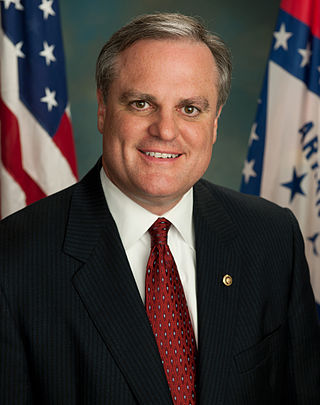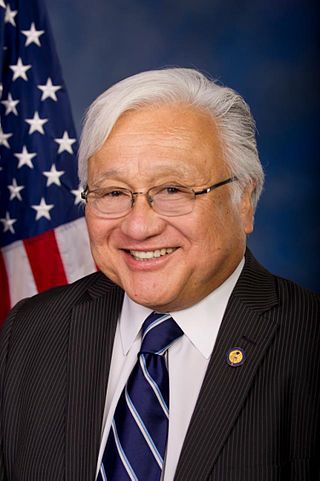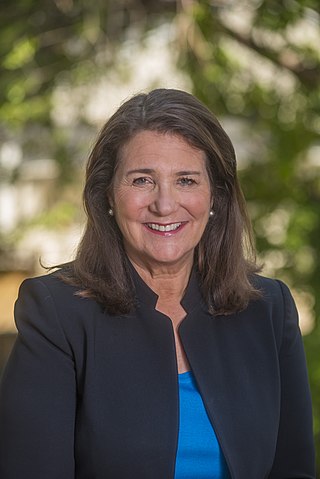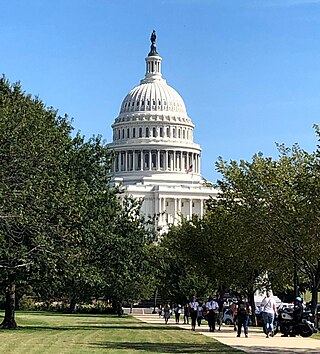
The speaker of the United States House of Representatives, commonly known as the speaker of the House, is the presiding officer of the United States House of Representatives. The office was established in 1789 by Article I, Section II, of the U.S. Constitution. By custom and House rules, the speaker is the political and parliamentary leader of the House and is simultaneously its presiding officer, de facto leader of the body's majority party, and the institution's administrative head. Speakers also perform various other administrative and procedural functions. Given these several roles and responsibilities, the speaker usually does not personally preside over debates—that duty is instead delegated to members of the House from the majority party—nor regularly participate in floor debates.

Nancy Patricia Pelosi is an American politician who served as the 52nd speaker of the United States House of Representatives from 2007 to 2011 and again from 2019 to 2023. A member of the Democratic Party, she was the first woman elected Speaker and the first woman to lead a major political party in either chamber of Congress, leading the House Democrats from 2003 to 2023. A member of the House since 1987, Pelosi currently represents California's 11th congressional district, which includes most of San Francisco.

Mark Lunsford Pryor is an American attorney, politician and lobbyist who served as a United States Senator from Arkansas from 2003 to 2015. He previously served as Attorney General of Arkansas from 1999 to 2003 and in the Arkansas House of Representatives from 1991 to 1995. He is a member of the Democratic Party.

The Medicare Prescription Drug, Improvement, and Modernization Act, also called the Medicare Modernization Act or MMA, is a federal law of the United States, enacted in 2003. It produced the largest overhaul of Medicare in the public health program's 38-year history.

Michael Makoto Honda is an American politician and former educator. A member of the Democratic Party, he served in Congress from 2001 to 2017.

Diana Louise DeGette is an American lawyer and politician serving as the U.S. representative for Colorado's 1st congressional district since 1997. A member of the Democratic Party, her district is based in Denver. DeGette was a Chief Deputy Whip from 2005 to 2019 and is the dean of Colorado's congressional delegation; she served as the Colorado State Representative for the 6th district from 1993 until her election to the U.S. House.

The Congressional Progressive Caucus (CPC) is a congressional caucus affiliated with the Democratic Party in the United States Congress. The CPC represents the furthest left-leaning faction of the Democratic Party. It was founded in 1991 and has grown since then, becoming the largest Democratic caucus in the House of Representatives.

The Children's Health Insurance Program (CHIP) – formerly known as the State Children's Health Insurance Program (SCHIP) – is a program administered by the United States Department of Health and Human Services that provides matching funds to states for health insurance to families with children. The program was designed to cover uninsured children in families with incomes that are modest but too high to qualify for Medicaid. The program was passed into law as part of the Balanced Budget Act of 1997, and the statutory authority for CHIP is under title XXI of the Social Security Act.

Bennie Gordon Thompson is an American politician serving as the U.S. representative for Mississippi's 2nd congressional district since 1993. A member of the Democratic Party, Thompson served as the chair of the Committee on Homeland Security from 2019 to 2023 and from 2007 to 2011. He was both the first Democrat and the first African American to chair the committee. He is the dean of Mississippi's congressional delegation.

Lloyd Alton Doggett II is an American attorney and politician who is a U.S. representative from Texas. A member of the Democratic Party, he has represented a district based in Austin since 1995, currently numbered as Texas's 37th congressional district.

During the presidency of George W. Bush, several American politicians sought to either investigate Bush for possible impeachable offenses, or to bring actual impeachment charges on the floor of the United States House of Representatives Judiciary Committee. The most significant of these efforts occurred on June 10, 2008, when Congressman Dennis Kucinich, along with co-sponsor Robert Wexler, introduced 35 articles of impeachment against Bush to the U.S. House of Representatives. The House voted 251 to 166 to refer the impeachment resolution to the Judiciary Committee on June 11, where no further action was taken on it. Bush's presidency ended on January 20, 2009, with the completion of his second term in office, rendering impeachment efforts moot.

The 110th United States Congress was a meeting of the legislative branch of the United States federal government, between January 3, 2007, and January 3, 2009, during the last two years of the Presidency of George W. Bush. It was composed of the Senate and the House of Representatives. The apportionment of seats in the House was based on the 2000 U.S. census.

Joseph Simon Donnelly Sr. is an American attorney, politician, and diplomat who has served as the United States Ambassador to the Holy See since 2022. A Democrat, he represented Indiana in the U.S. House of Representatives from 2007 to 2013 and in the U.S. Senate from 2013 to 2019.

The Implementing Recommendations of the 9/11 Commission Act of 2007, is an Act of Congress. The Act implements some of the recommendations of the 9/11 Commission including mandating 100% inspection of all air and sea cargo entering the United States, and a new method of redistributing anti-terrorism funding.

The Fair Minimum Wage Act of 2007 is a US Act of Congress that amended the Fair Labor Standards Act of 1938 to gradually raise the federal minimum wage from $5.15 per hour to $7.25 per hour. It was signed into law on May 25, 2007 as part of the U.S. Troop Readiness, Veterans' Care, Katrina Recovery, and Iraq Accountability Appropriations Act, 2007. The act raised the federal minimum wage in 3 increments: to $5.85 per hour 60 days after enactment, to $6.55 per hour a year later, and finally to $7.25 per hour two years later. In addition, the act provided for the Northern Mariana Islands and American Samoa to make the transition to the federal minimum wage on alternate timetables.

The Energy Independence and Security Act of 2007, originally named the Clean Energy Act of 2007, is an Act of Congress concerning the energy policy of the United States. As part of the Democratic Party's 100-Hour Plan during the 110th Congress, it was introduced in the United States House of Representatives by Representative Nick Rahall of West Virginia, along with 198 cosponsors. Even though Rahall was 1 of only 4 Democrats to oppose the final bill, it passed in the House without amendment in January 2007. When the Act was introduced in the Senate in June 2007, it was combined with Senate Bill S. 1419: Renewable Fuels, Consumer Protection, and Energy Efficiency Act of 2007. This amended version passed the Senate on June 21, 2007. After further amendments and negotiation between the House and Senate, a revised bill passed both houses on December 18, 2007 and President Bush, a Republican, signed it into law on December 19, 2007, in response to his "Twenty in Ten" challenge to reduce gasoline consumption by 20% in 10 years.

The U.S. Troop Readiness, Veterans' Care, Katrina Recovery, and Iraq Accountability Appropriations Act, 2007,, is an emergency appropriations act passed by the 110th United States Congress that provides funding for the Iraq War through September 30, 2007. A prior version of the act, H.R. 1591, included a timeline for withdrawal of U.S. troops from Iraq. H.R. 1591 was passed by Congress but vetoed by President George W. Bush. While the veto of H.R. 1591 could have caused delays for Iraq war expenditures, the availability of funds resulting from the passage of the Defense Appropriations Act on September 29, 2006, allowed the Department of Defense to continue Iraq War spending in the interim period between the veto of H.R. 1591 and the President's signature of approval for H.R. 2206. The Feed and Forage Act was not invoked by the U.S. government in the days prior to the passage of H.R. 2206.
The Affordable Health Care for America Act was a bill that was crafted by the United States House of Representatives of the 111th United States Congress on October 29, 2009. The bill was sponsored by Representative Charles Rangel. At the encouragement of the Obama administration, the 111th Congress devoted much of its time to enacting reform of the United States' health care system. Known as the "House bill,” HR 3962 was the House of Representatives' chief legislative proposal during the health reform debate.

The 117th United States Congress was a meeting of the legislative branch of the United States federal government, composed of the United States Senate and the United States House of Representatives. It convened in Washington, D.C., on January 3, 2021, during the final weeks of Donald Trump's presidency and the first two years of Joe Biden's presidency and ended on January 3, 2023.

















